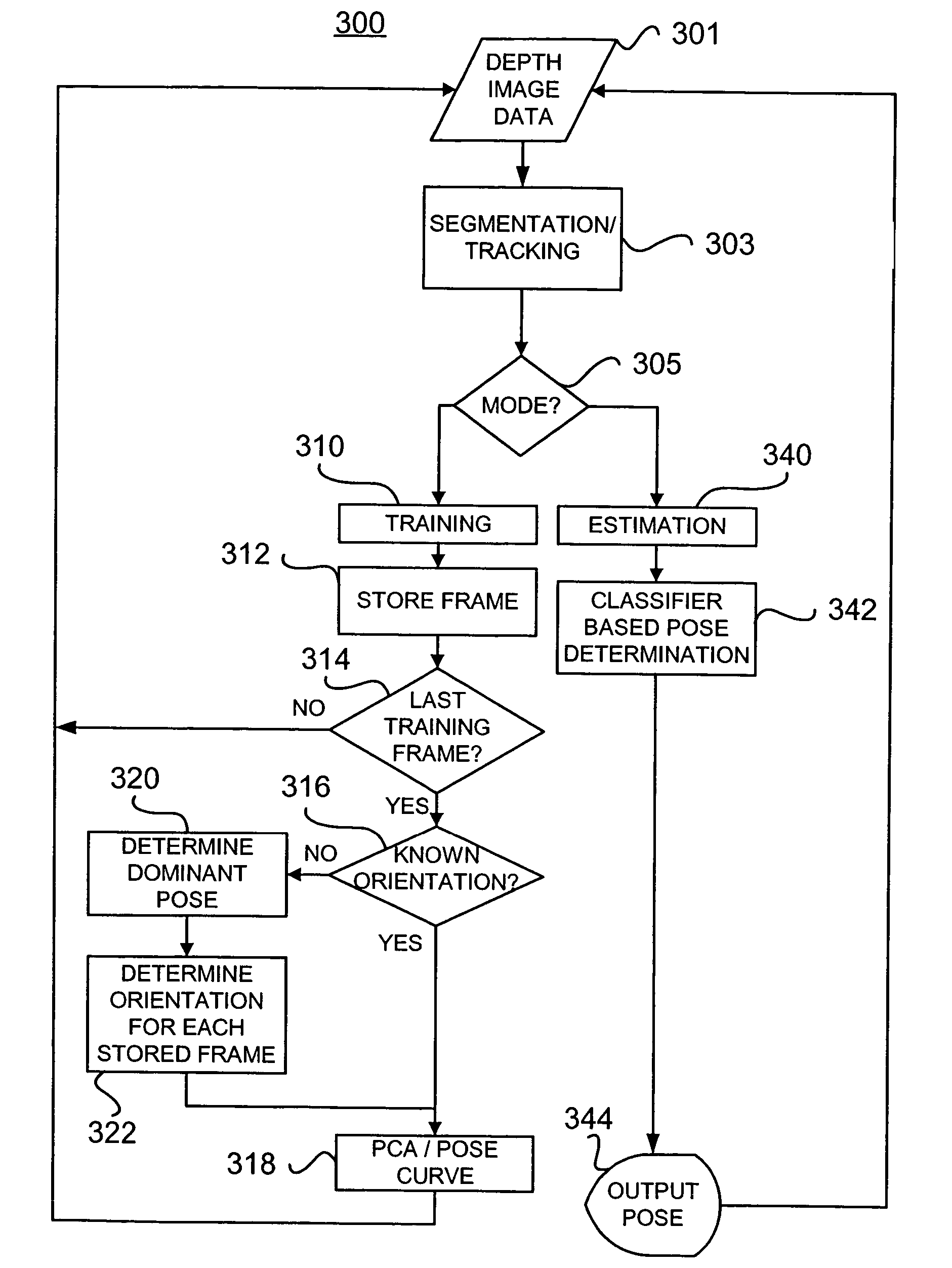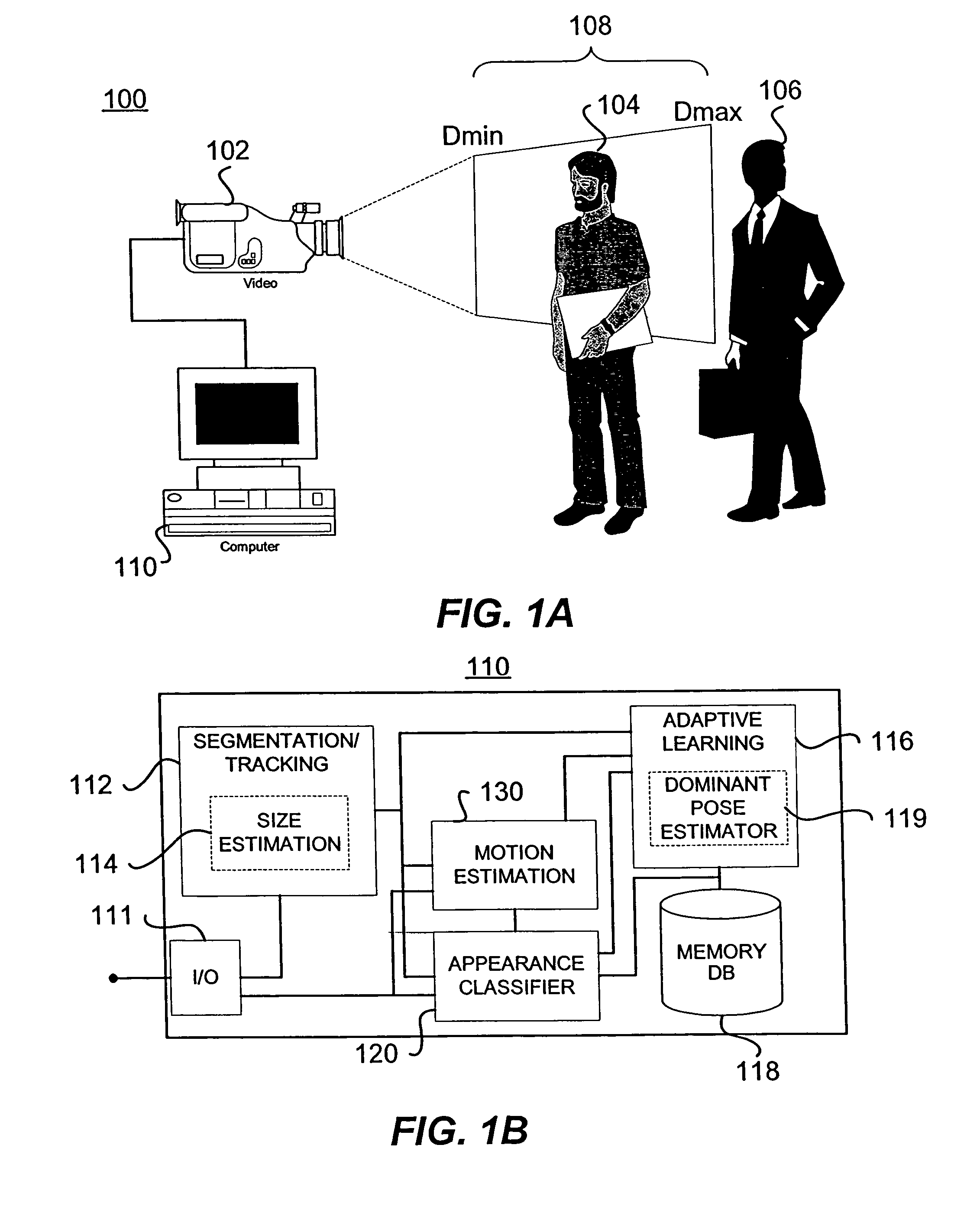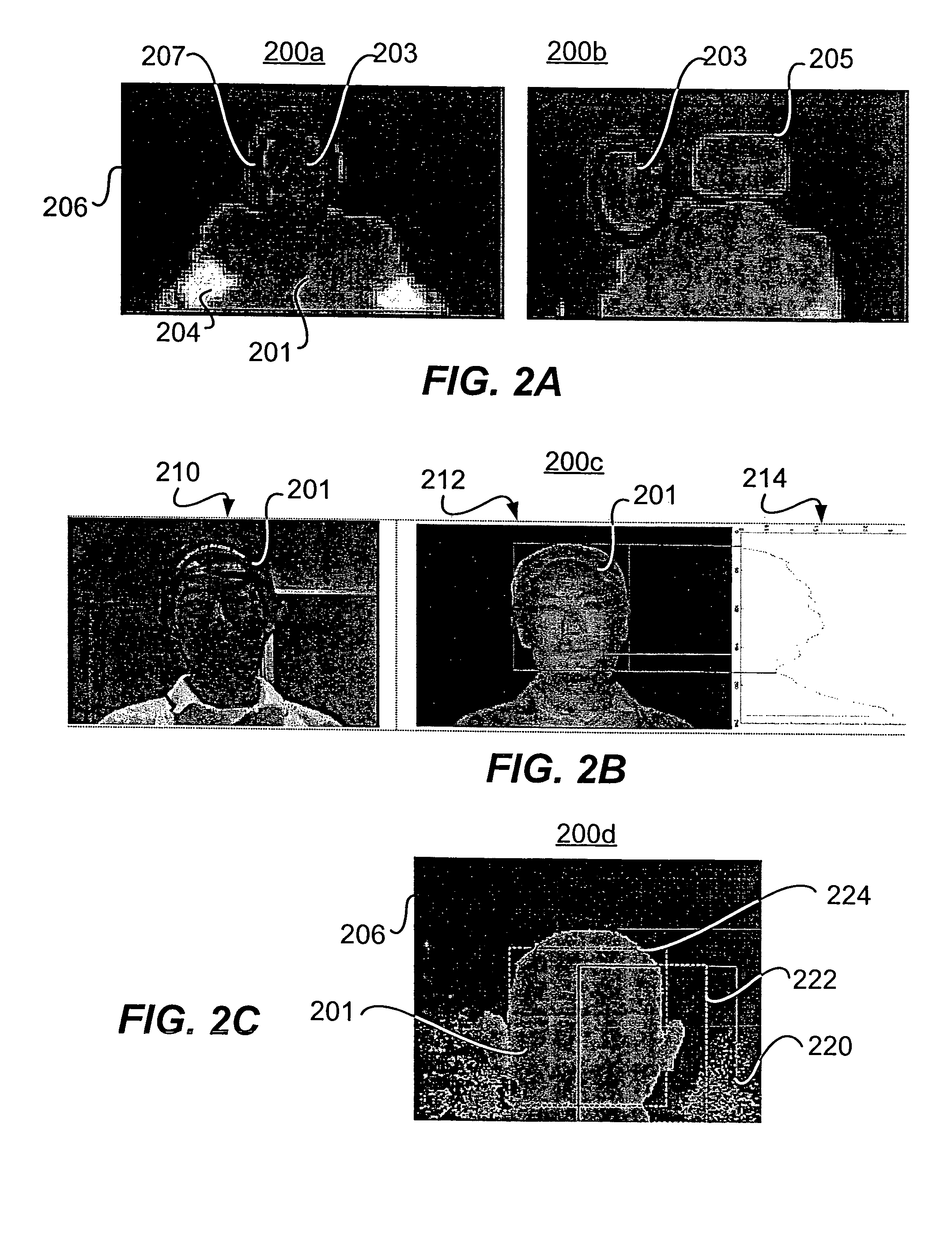Target orientation estimation using depth sensing
a depth sensing and target orientation technology, applied in the field of computer-based estimation of target orientation or pose, can solve problems such as failure of classification, selection of a set of features in a human face, and problems such as appearance-based classification
- Summary
- Abstract
- Description
- Claims
- Application Information
AI Technical Summary
Benefits of technology
Problems solved by technology
Method used
Image
Examples
Embodiment Construction
[0036]The Figures and the following description relate to preferred embodiments of the present invention by way of illustration only. It should be noted that from the following discussion, alternative embodiments of the structures and methods disclosed herein will be readily recognized as viable alternatives that may be employed without departing from the principles of the claimed invention.
[0037]Referring now to FIG. (“FIG.”) 1A, one embodiment of an orientation estimation system configuration is shown. The orientation estimation system 100 in this embodiment uses depth-sensing technology. Depth-sensing technology is based on the time-of-flight principle. Cameras using this technology are known as time-of-flight cameras. In the present embodiment, the image capturing method of camera 102 is based on active sensing with a time-of-flight camera. Active depth sensing is performed with a pulse of infrared illumination. The pulse is projected to the target 104 and the sensor reads its e...
PUM
 Login to View More
Login to View More Abstract
Description
Claims
Application Information
 Login to View More
Login to View More - R&D
- Intellectual Property
- Life Sciences
- Materials
- Tech Scout
- Unparalleled Data Quality
- Higher Quality Content
- 60% Fewer Hallucinations
Browse by: Latest US Patents, China's latest patents, Technical Efficacy Thesaurus, Application Domain, Technology Topic, Popular Technical Reports.
© 2025 PatSnap. All rights reserved.Legal|Privacy policy|Modern Slavery Act Transparency Statement|Sitemap|About US| Contact US: help@patsnap.com



